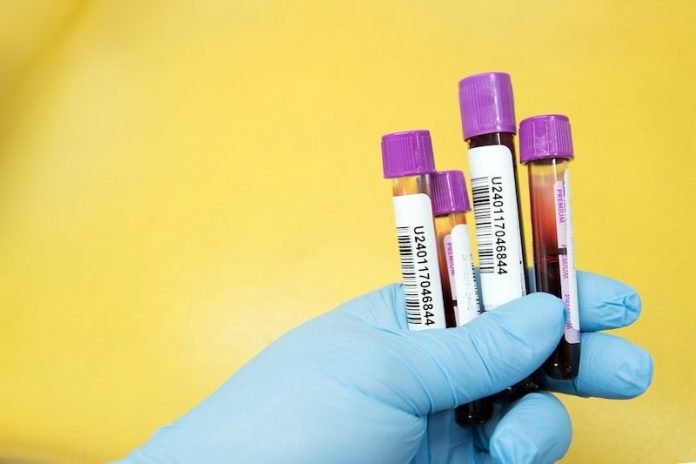
In a new study from Yale, researchers found blood clots in patients with COVID-19 are associated with increased levels of various proteins that cause blood to clot, compared with people with blood clots unrelated to COVID-19.
These findings may offer insights into novel therapeutic strategies to treat patients with COVID-19 related blood clots.
Between December 2020 and February 2021, blood was collected from 48 inpatients.
Of these, 24 patients had a confirmed diagnosis of COVID-19 infection and arterial or venous thromboembolism; 17 had a COVID-19 infection with no arterial thrombosis and absence of venous thromboembolism, while 7 were diagnosed with arterial or venous thromboembolism in the absence of COVID-19.
Researchers found that levels of several proteins were higher in patients with COVID-19 who also developed blood clots.
One of these proteins, tissue factor, is classically associated with an injury to the lining of the vessel (endothelium), and since it was higher in the blood of patients with COVID-19, it suggests a more profound injury to the endothelium.
The level of another protein, pentraxin-3, was also higher in the patients who developed blood clots in the setting of COVID-19. This protein is produced by endothelial cells during inflammation.
Researchers also found that two additional proteins, C2 and C5a also higher in patients who developed blood clots in the setting of COVID-19.
Prior studies had noted that these proteins are associated with more severe diseases.
The team says they expected to find differences in protein levels in patients who developed blood clots in the presence of COVID-19 and without it.
However, the absence of significant differences in protein levels of patients with COVID-19 with and without blood clots was unexpected.
The finding suggests that the overall difference in concentration of proteins involved in the body’s ability to clot blood is related to the COVID-19 disease itself.
If you care about COVID, please read studies about existing drugs that can kill COVID-19 virus, and findings of the heartburn drug that may help treat COVID-19, reduce severity.
For more information about health, please see recent studies about high blood pressure treatment that is safe and much more effective, and results showing that this supplement could reduce coughing, congestion, and sore throat.
The study was presented at the 2021 American Society of Hematology (ASH) Annual Meeting & Exposition. One author of the study is Daria Madeeva, MD.
Copyright © 2021 Knowridge Science Report. All rights reserved.



